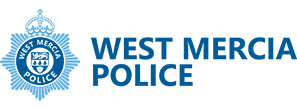
|
||
|
|
||
|
||
|
WEEKLY FRAUD UPDATE FROM WEST MERCIA POLICE - ECONOMIC CRIME UNIT - 18/02/2025 |
||
|
TELEPHONE FRAUD The number of “Nuisance” calls has risen in recent years from 21% to 40%, and according to OFGEN, nearly 40% of Scams start with a phone call.
Older persons may be particularly vulnerable as they rely on their phones for contact and companionship, so it is helpful to make elderly relatives aware of the dangers of cold callers.
These calls involve fraudsters trying to gain your personal and financial information, and are often referred to as “Vishing” – an amalgamation of “Voice” and “Phishing”.
Very often the fraudster has disguised their call identity by using an apparently legitimate number so appearing genuine; this is known as “Spoofing”. If you do receive a call from a company which is not expected then just hang up, and do not engage with that caller.
Common Phone Call Scams Technical Support scams - They may impersonate a company such as Microsoft or BT, and tell you there is a fault on your computer or Broadband. They then probably will ask you to download remote access software to gain access to your computer, or else install Malware on your computer.
Never give out your financial information over the phone, and just hang up if you are unsure about the caller’s identity Please feel free to share these messages with any vulnerable friends, relatives or neighbours
----------------------------------------------------------------------------------------------------- Fake Text messages can be forwarded to 7726 to help phone providers take early action and block numbers that generate spam on their networks. You can also report fraudulent mobile calls by texting 7726 with the word “Call” followed by the fraudster’s phone number. Forward Fake Emails received to report@phishing.gov.uk If you think your bank account or personal banking details have been used fraudulently, then use the short phone number - 159 - to contact the Fraud Prevention Department of most major UK banks
| ||
Reply to this message | ||
|
|






